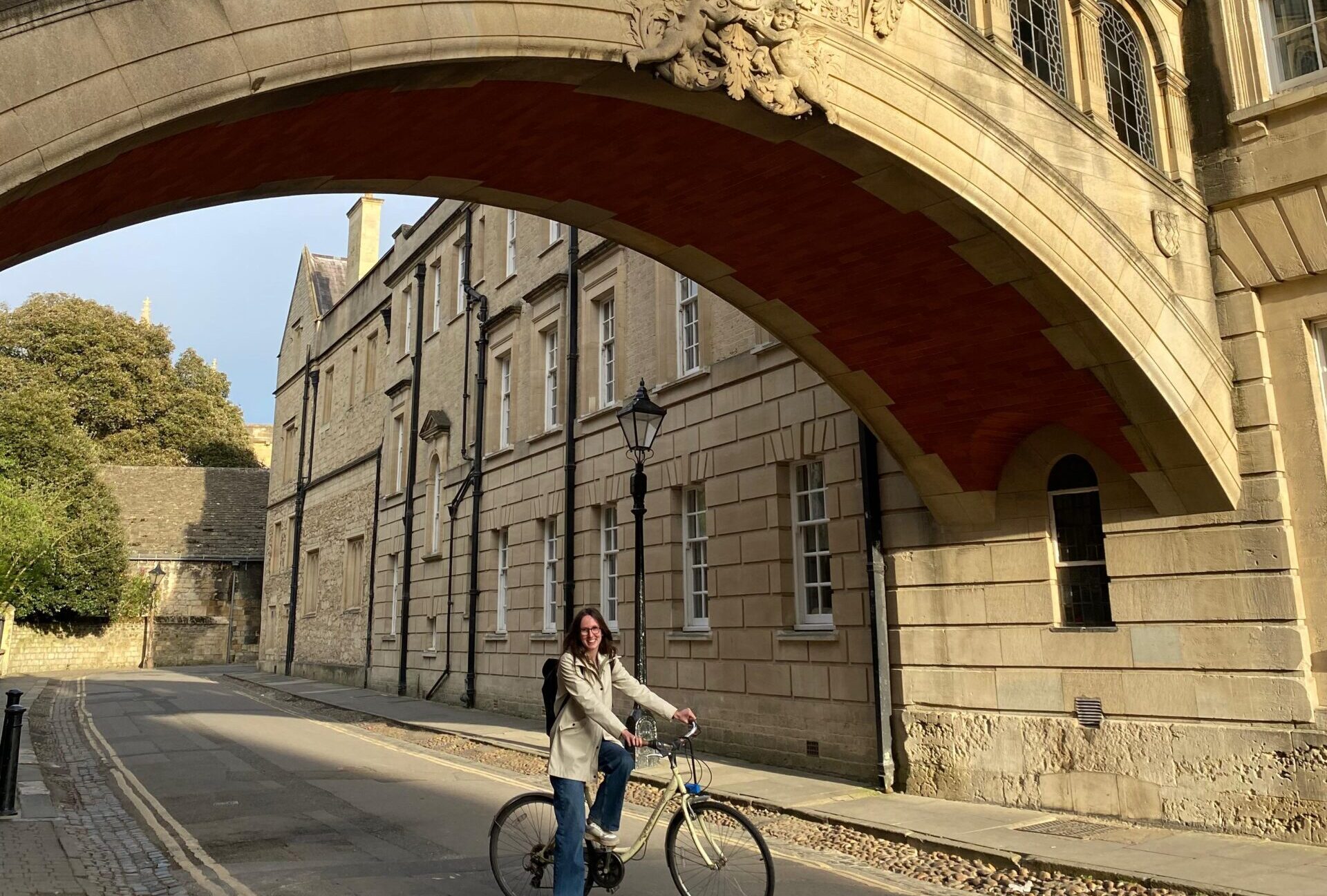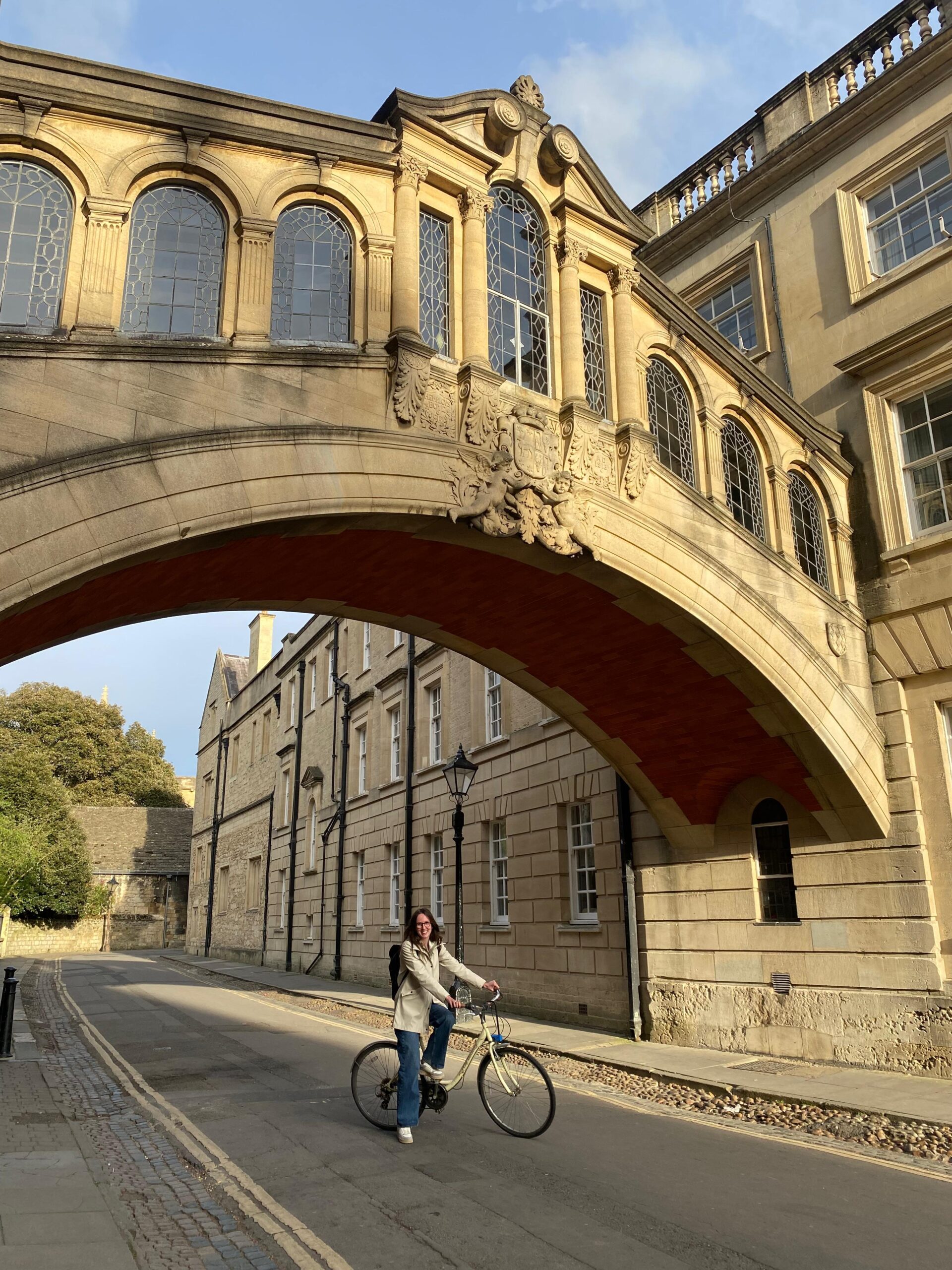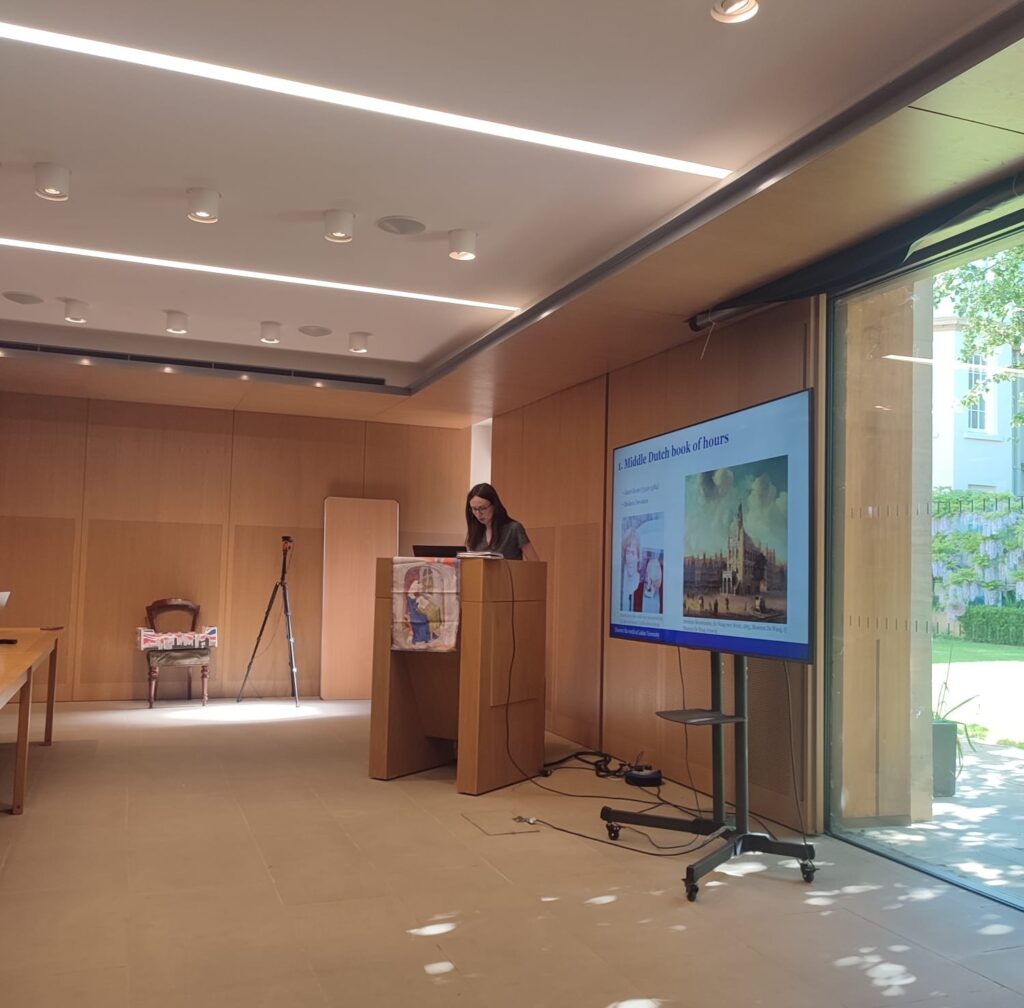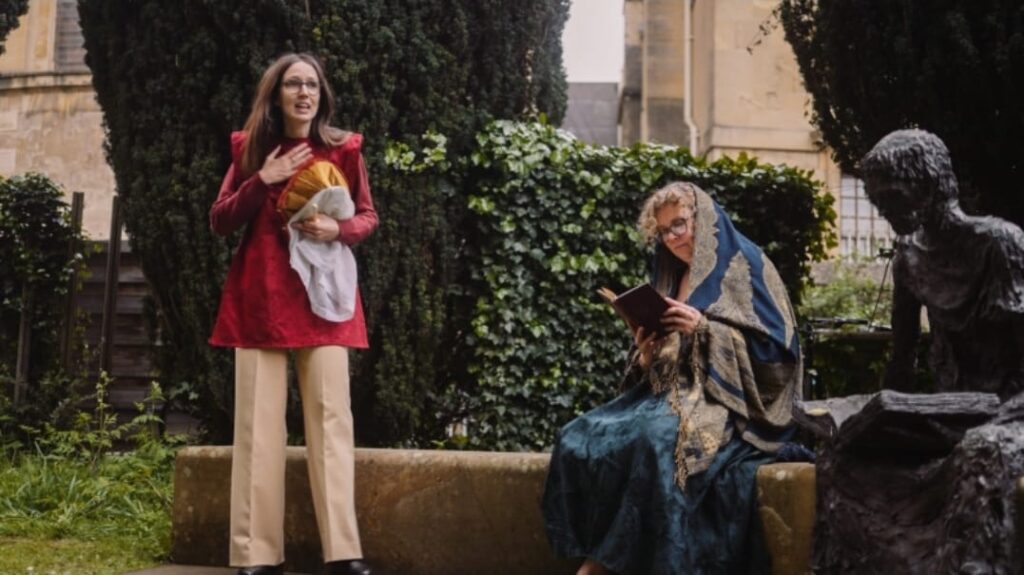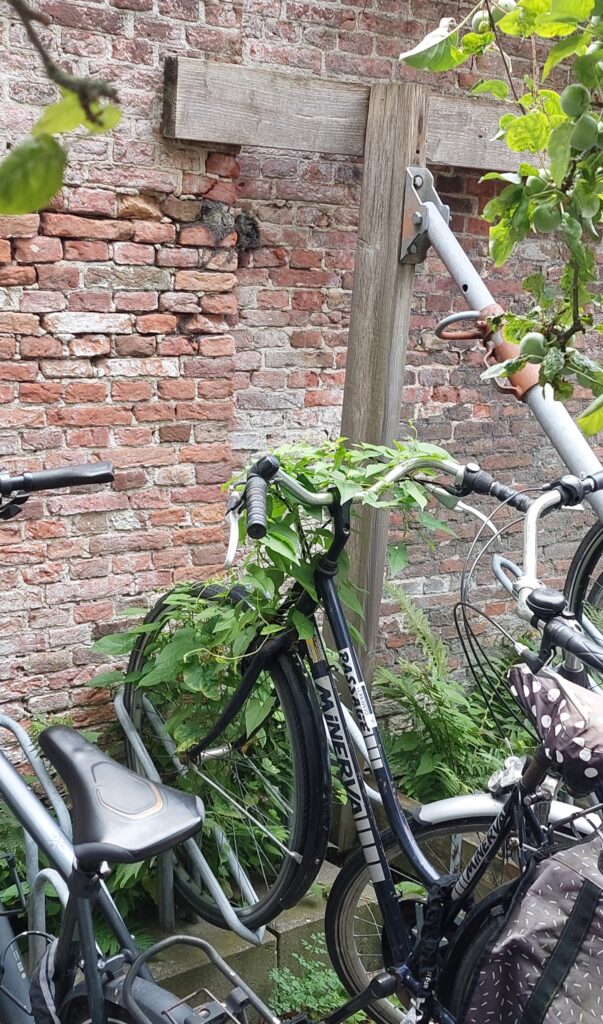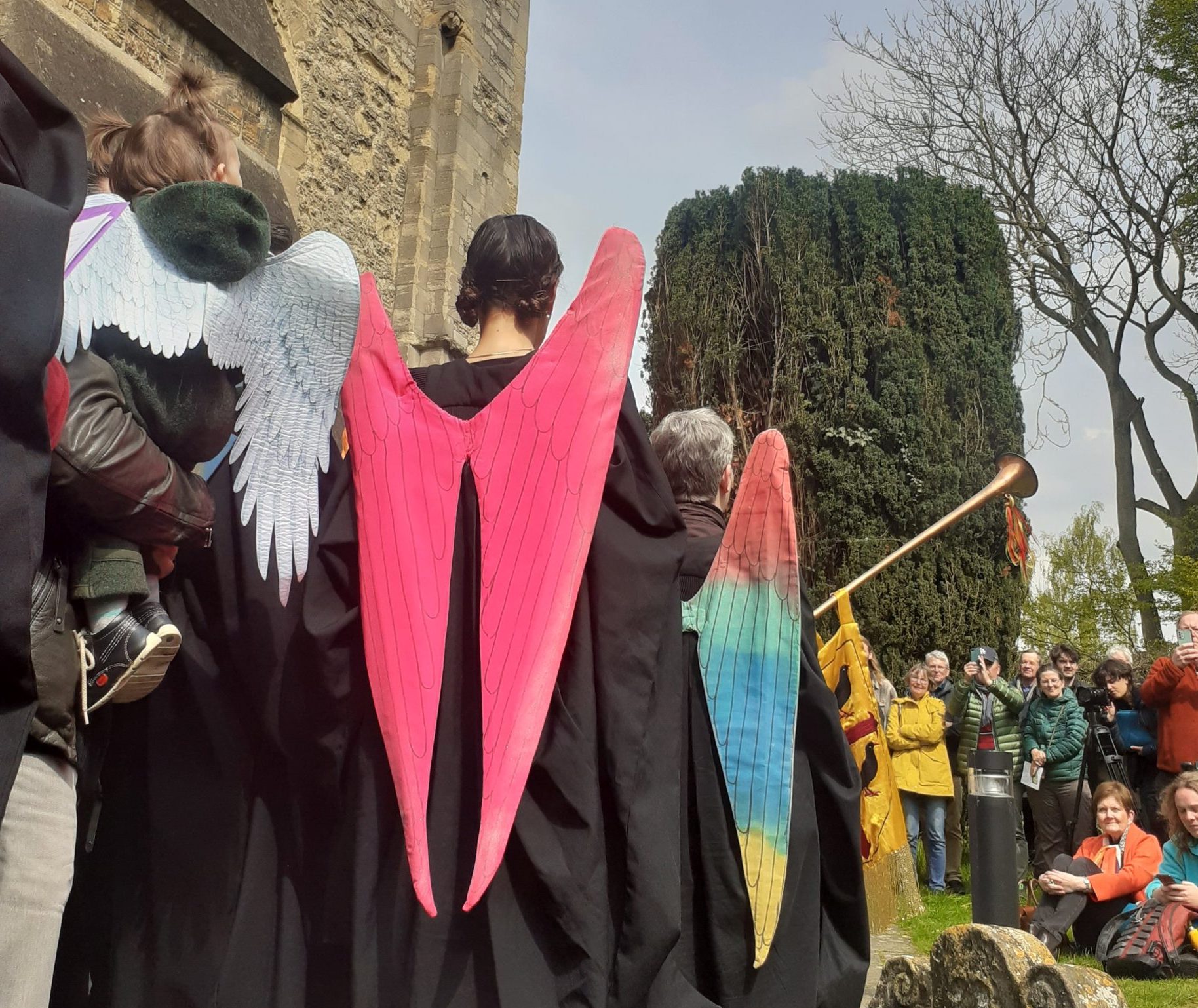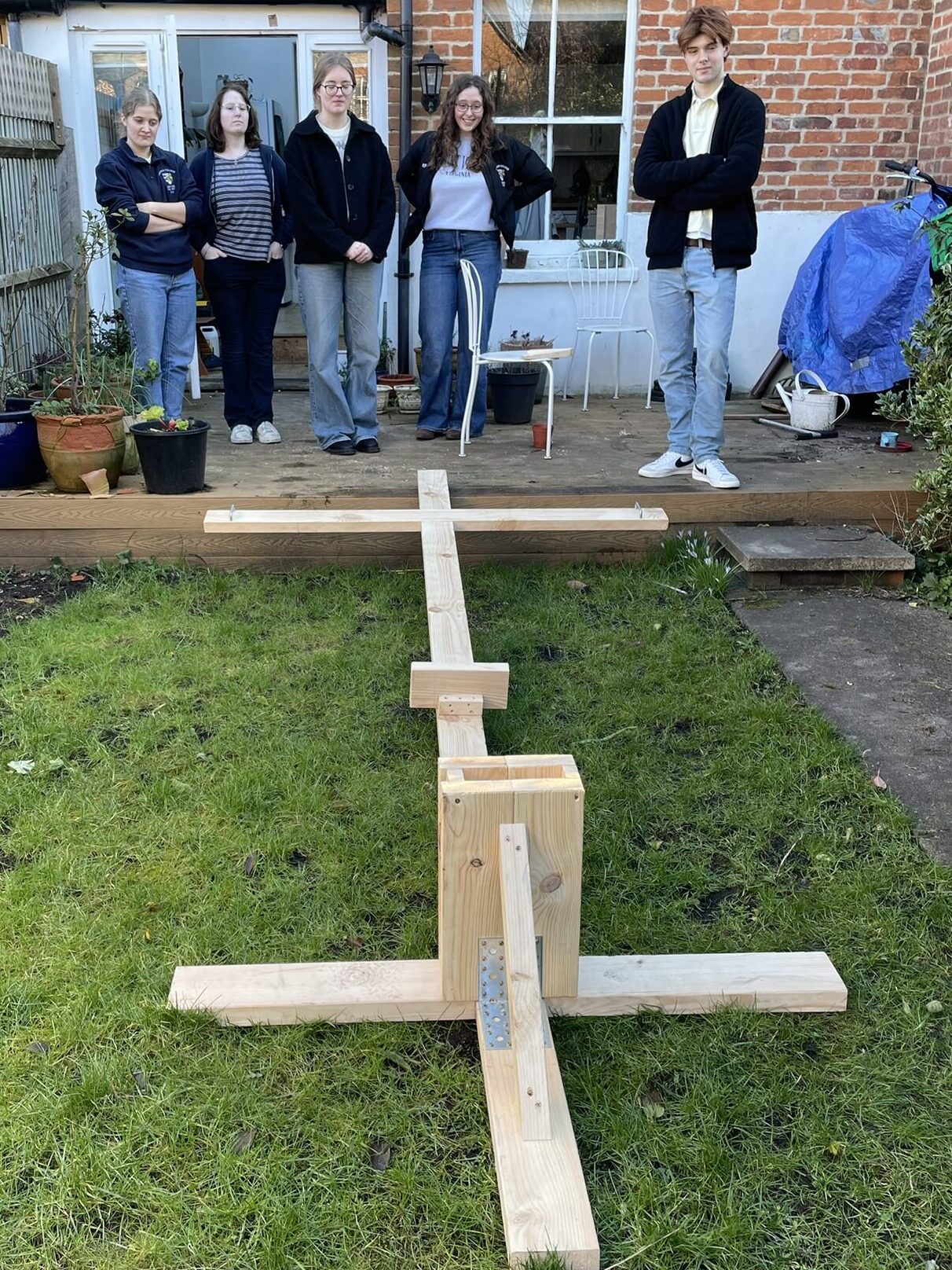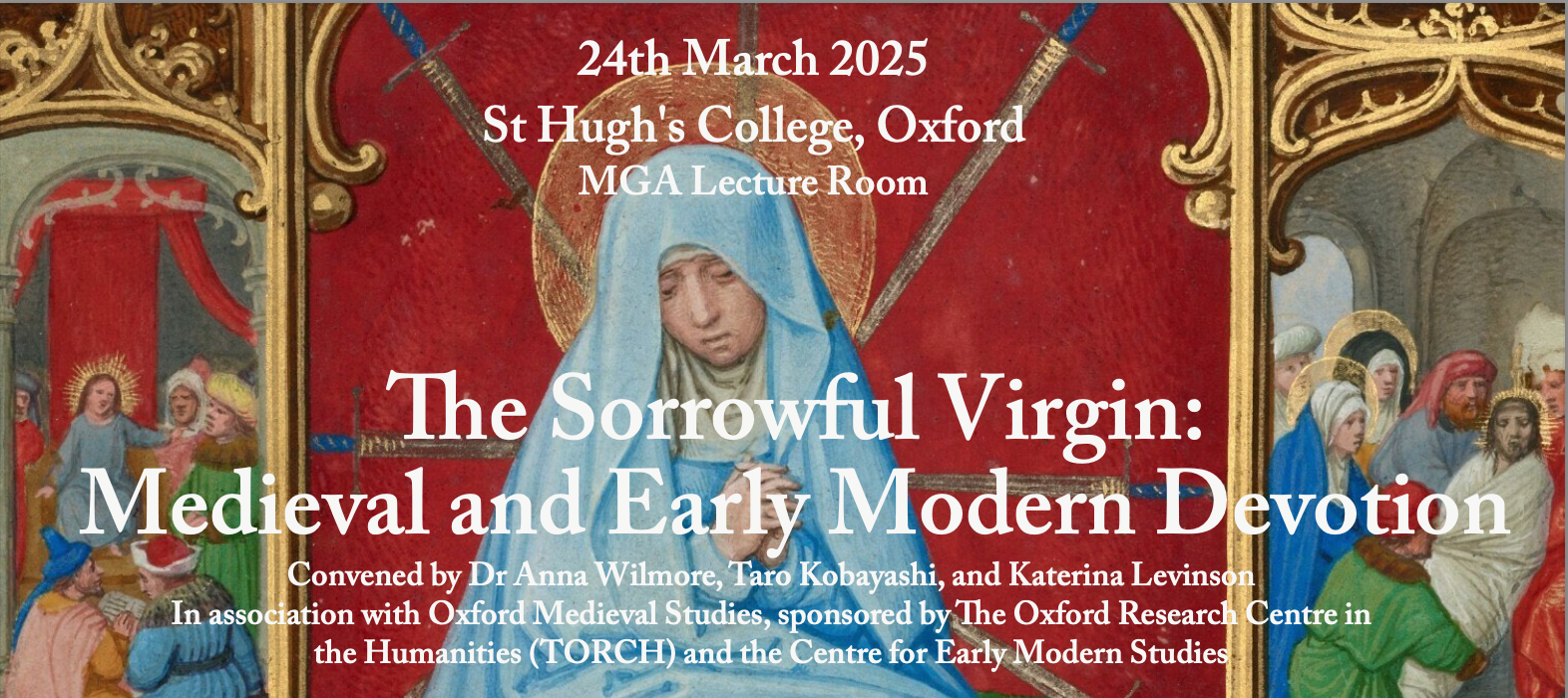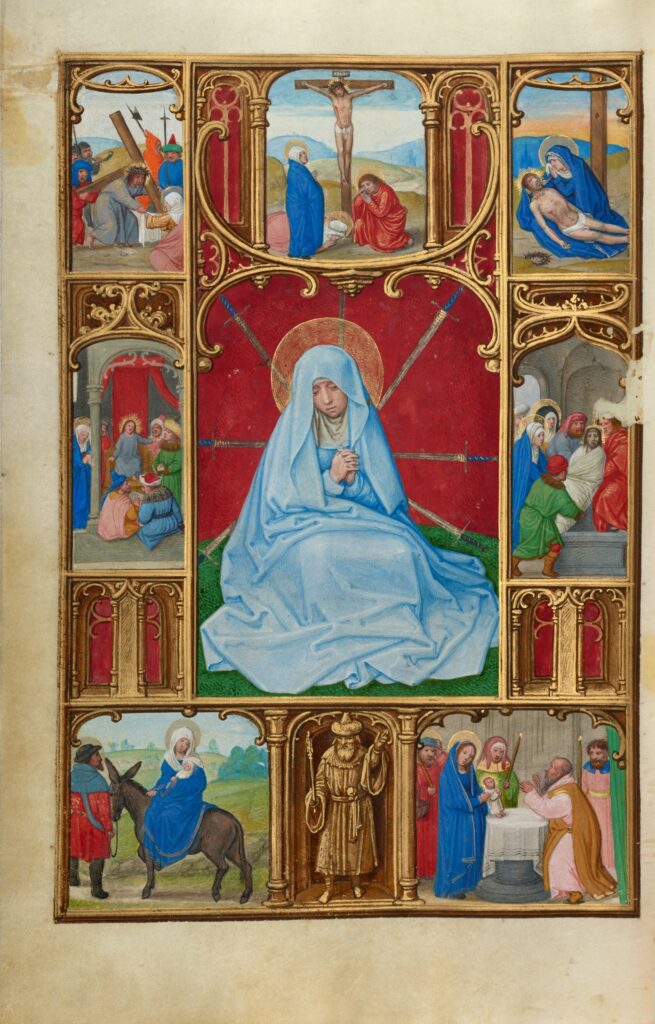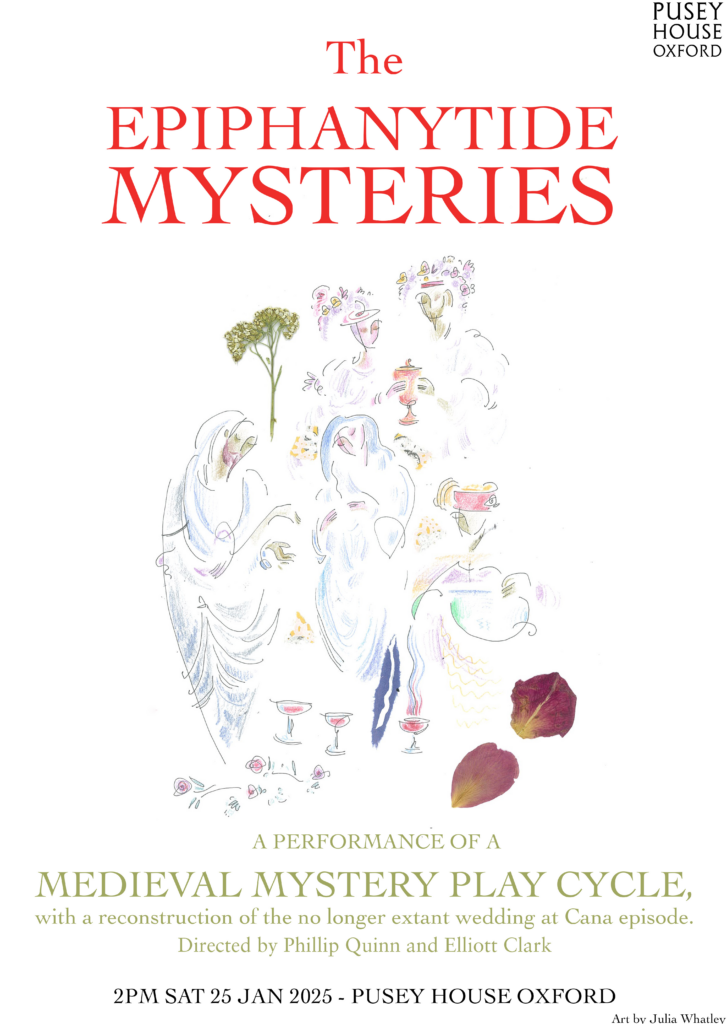Welcome to Week 4. An updated version of the OMS Booklet is linked here, and is available on the OMS website throughout the term. For your diary: The 2026 OMS Lecture will take place on Thursday 19 February 5–6.30pm in the Old Dining Hall of St Edmund Hall. Prof. Ian Forrest (Glasgow) will be speaking on ‘Telling Tails: Weaponizing Gender in the Late Medieval Church‘. Drinks to follow. More information and register for dinner. Tony Hunt’s memorial service is will be held on 16th May, 2.30, St Peter’s College Chapel (booking etc in due course).
Events
Monday
- French Palaeography Manuscript Reading Group – 10:30, Weston Library
- Seminar in Palaeography and Manuscript studies – 2:15, Weston Library. Emily Guerry (Oxford) will be speaking on ‘The Bodleian’s Gaignières Collection: A paper museum for Gothic tombs’.
- Medieval Archaeology Seminar – 3:00, Archaeology Faculty. Matthew Johnson will be speaking on ‘New World Settlement and the English Middle Ages’.
- Medieval History Seminar – 5:00, All Souls College. Cordelia Heß (Aarhus) will be speaking on “Medieval Racism? Social Practices in Colonial Contact Zones in Greenland and Sápmi (900-1500)
- General Linguistics Seminar – 5.15, Humanities Centre 30.400. Henrike Lähnemann will be speaking on The nuns’ language: Latin-German code-mixing in the Lüne letters
- Theory and Play: Comparative Medievalisms – 5.15, Lady Margaret Hall. Selections from: Anandavardana’s Dhvanyaloka (9th century CE, tr. The Light of Suggestion); Mechthild of Magdeburg’s Das fließende Licht der Gottheit (13th century CE, tr. The Flowing Light of the Godhead); Cywydd Ymry
Tuesday
- Medieval English Research Seminar – 12:15, Room 00.079 (Humanities Centre). Kirsty Bolton (University of Oxford) will be speaking on ‘Power and conversion in middle English romance’.
- Europe in the Later Middle Ages Seminar – 2:00, New Seminar Room, St John’s College. Simon Egan, Queen’s University Belfast will be speaking on ‘God forebede that a wylde Yrishe wyrlynge shulde be chosene for to be there kynge’: Gaelic Recovery in a North Atlantic Context, c.1350-c.1550′
- Latin Palaeography Manuscript Reading Group – 2:00, Weston Library (Horton Room). Those who are interested can contact the convenor, Laure Miolo.
- Medieval Church and Culture, theme: TRANSLATION(S) – tea and coffee from 5:00, Harris Manchester College. Clément Salah (Queen’s) will be speaking on ‘Materialising Translation: manuscripts and the movement of knowledge in tenth-century North Africa’.
- Heraldry Society – 5:00, MacGregor Room, Oriel College. Patric Dickinson, CVO (Clarenceux 2010-21) will be speaking on ‘Symbolism in Heraldry: Mysterious or Manifest?’
- Old English Hagiography Reading Group – 5:15, Jesus College Memorial Room. The first text is the anonymous Life of Saint Giles – email Luisa Ostacchini for a copy.
- Church Historian Pub Night – 6:00 at the Chequers Inn. Contact Rachel Cresswell
Wednesday
- Medieval German Graduate Seminar – 11:15, Old Library, St Edmund Hall. The topic for this term is the ‘Liederbuch der Clara Hätzlerin’.
- History and Materiality of the Book Seminar series – 2:15, Weston Library. Céline Delattre and Robert Minte will be speaking on ‘Inks and Pigments’
- Older Scots Reading Group – 2:30, Room 30.401 (Humanities Centre). Palyce of Honour, First Part, ll. 127-771
- The Medieval Latin Documentary Palaeography Reading Group – 4:00, online.
- Late Antique and Byzantine Seminar – 5:00, Ioannou Centre for Classical and Byzantine Studies. Pamela Armstrong (Oxford) will be speaking on ‘The Excavations of the Church of St Polyeuktos at Sarachane Revisited’
- Islamic Studies Seminar: ‘Hajj the Art of Pilgramage’ – 5:00, Oxford Centre for Islamic Studies.
- John Lydgate Book Club – 5:15pm. All Souls College, Hovenden Room. Mary Wellesley will speak on Lydgate and devotion.
Thursday
- Middle English Reading Group (MERG) – 11:00, Lincoln College, Beckington Room. Sir Gawain and the Green Knight.
- Medieval Women’s Writing Research Seminar – 4:00, Somerville College. Pilgrims and Travellers, including extracts from the works of Egeria, Margery Kempe and Lady Nijo.
- Celtic Seminar – 5:15, Room 20.306 (Humanties Centre) and Online. Llion Wigley (University of Wales Press) will be speaking on ‘Ynysoedd Gobaith: Adeiladu Iwtopia yng Nghymru’r Ugeinfed Ganrif’.
- The Khalili Research Centre For the Art and Material Culture of the Middle East: Research Seminar – 5:15, The Khalili Research Centre. BOOK LAUNCH — Islamic Objects in Seventeenth-Century Italy: Ferdinando Cospi, the Bologna Collection and the Medici Court.
- A Medieval Saint in the Modern World: Oswald of Northumbria in Words and Music – 6:15, The Chapel at King’s College London.
- Compline in the Crypt – 9:30, St Edmund Hall.
Friday
- Medievalist Coffee Morning – Friday 10:30, Visiting Scholars Centre (Weston Library). All welcome, coffee and insight into special collections provided.
- The History of the Bible: From Manuscripts to Print – 12:00, Visiting Scholars Centre at the Weston Library. Translations of the Bible in the Eastern Mediterranean: Syriac, Coptic, Ethiopic and Arabic. Places are limited. To register interest and secure a place, please contact Péter Tóth
- Exploring Medieval Oxford through Surviving Archives – 2:00, Weston Library (Horton Room). Those who are interested can contact the convenor, Laure Miolo.
- EMBI ‘Databases: A Skills Workshop’ – 4.00, Humanities Centre, History of Art Seminar Room.
- Oxford Medieval Manuscript Group – 5:00, Sir Howard Stringer Room at Merton College, Emma J. Nelson (No take-backsies? Gerald of Wales and the Boundaries of Book Donation) and Elliot Cobb (Miraculous and Marginal Women in the Metz Psalter-Hours).
Opportunities and Reminders
- OMS Small Grants Now Open.
- Are you interested in submitting to the journal Manuscript and Text Cultures? Please review the About the Journal page for the journal’s section policies.
- Doctoral studentship on Carolingian Latin poetry (Toronto-Melbourne).
- CfP: Medieval German History (GHIL) – Deadline: 15 February
- ‘Describing the British Library’s Illustrated and Illuminated Incunabula’ PhD placement opportunity at the British Library. Deadline: 27th Feb.
- Donald J. Keefe, S.J. Summer Research Fellowship. Deadline 1st March
- CfP: 20th Annual MEMSA Conference: Connection, Conversation, Contention: Encounters in the Medieval and Early Modern World – deadline 9 March 2026
- CfP: Gender and Medieval Studies conference 2026: Gender and Creativity. The conference will take place at University College, Oxford, 8-10 September. Deadline 13 April.
- Call for submissions for a special issue of Public Humanities journal on the topic ‘Creating the Medieval Now.’ Edited by Laura Varnam and Eleanor Barraclough. Short essays of 2,000-3,000 words, due 1 May 2026, by medievalists who are also creative practitioners.

